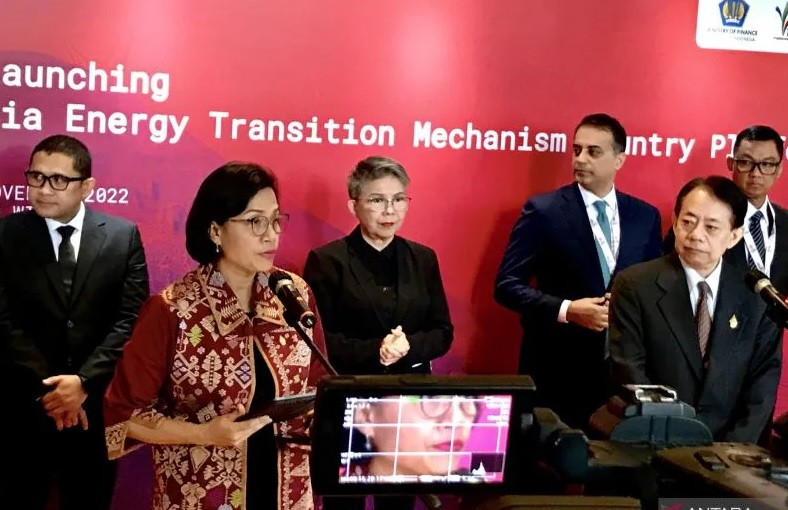
Renewable energy is a pressing issue that is challenging the world today. The pandemic has taught the world a valuable lesson: to be more serious about responding to climate change.
It is undeniable that humans need energy to carry out their daily activities. However, environmental conditions are declining due to previous lack of attention by humans in carrying out both personal and industrial needs.
This transition to renewable energy is essential for achieving the global goal of limiting global warming as agreed upon in the Paris Agreement.
While energy is essential, ensuring a safe and economical energy supply is necessary for sustainable economic growth and poverty eradication. It will also help to reduce air pollution, improve public health and create new job opportunities in renewable energy sector.
The World Economic Forum (WEF) defines the energy transition as “a timely change toward more inclusive, secure, affordable and sustainable energy systems that provides solutions to global energy-related challenges, while creating value for business and society, without compromising the balance of the energy triangle”.
Energy is a vital sector as it accounts for almost 73 percent of greenhouse gas emissions globally. Government regulations and consumer preferences have largely led the transformation, but as the price of renewable energy continues to decline, the market will then inevitably move in favor of renewables and alter the world’s energy mix.
The larger objective of lowering carbon emissions, greenhouse gas emissions and the increase in global temperatures is a key component of the present energy transition strategy.
The Paris Agreement’s main objective is to keep global warming below 2 degrees Celsius, ideally below 1.5 degrees. Continuous dependency on fossil fuels as energy supply has increased in carbon emissions, which are a major contributor to climate change and global warming.
Therefore, access to affordable, dependable electricity from renewable sources is a game changer. According to SEforALL, 759 million people worldwide did not have access to electricity as of 2022. For these areas, the introduction of sustainable energy options and electricity generation can bring essential services like improved healthcare, better education and reasonably priced internet.
This enhances livelihoods, provides financial incentives to reduce poverty, and contributes to the achievement of the sustainable development goals. It particularly produces new jobs in the electricity sector.
Access to clean, dependable energy would save lives and give prospects for prosperity in places such as Africa and South Asia, where half of secondary schools and a quarter of medical institutions lack electricity.
Global agreement has been reached admitting to the need for action to stop the negative effects of inaction on climate change, but it is still behind schedule. The necessity for quick action to prevent further and irreparable harm to the Earth is emphasized by the Intergovernmental Panel on Climate Change (IPCC).
To address climate change, it is important to transition to more sustainable, diverse and renewable energy options such as wind, solar, hydro and geothermal power. Sweden, Norway and Denmark have achieved the highest levels of the energy transition, according to WEF’s Energy Transition Index for 2021.
This demonstrates that the European Union and the continent of Europe are driving the change. Over 2 percent of the world’s population and around 3 percent of all energy-related CO2 emissions are produced by the top ten countries. Asia’s participation in the global shift is also essential to successful energy transitions.
Almost 50 percent of the world’s population, 60 percent of the energy demand, and almost 50 percent of the energy consumed in Asia in 2020 came from fossil fuels. Asia’s expanding population and rising per capita income are the main drivers of this demand.
Hence, Asia must assume a leading position in the global transition to sustainable energy, despite the gradual pace of change. The availability of abundant renewable energy sources, affordable manufacturing, utilization of electric vehicle production and rising population have become key strengths of Asia.
With regard to domestic development, Indonesia and 14 international institutions have signed a memorandum of understanding to accelerate the energy transition. This collaboration makes Indonesia the leading country in preparing affordable clean energy globally. The government is also committed to reducing carbon dioxide emissions in accordance with the Paris Agreement. It has submitted a new proposal for a nationally determined contribution (NDC), submitted to the United Nations, to reduce carbon emissions by 32 percent or the equivalent of 912 million tonnes of CO2 by 2030, higher than the previous target of 29 percent.
The main step to accelerate this energy transition can be done by initiating early retirement from using coal or repurposing power plants. This energy transition step is believed to be able to reduce around 50 million tons of carbon emissions by 2030, or 160 million tons by 2040. Indonesia is also discussing opportunities for the Just Energy Transition Partnership (JETP) with 10 developed countries that are members of the International Partner Group (IPG).
Presidential Regulation No. 112/2022 on the acceleration of the development of renewable energy in the provision of electricity encourages global collaboration with Indonesia and investment in the energy transition sector.
However, transitioning to renewable energy will require significant investment in infrastructure and technology, as well as policy changes to encourage the adoption of renewable energy sources. The financial burden of supporting this shift is inevitable, hence it also needs support from the banking and financial sectors.
Regulators and the government need to provide guidelines and specific incentives that are aligned with global best practices on frameworks, reporting and other standards of sustainable finance practice in order to encourage “affordable” green financing or sustainability-linked initiatives from financial institutions and brown to green project transitions from real sectors.
An example is relaxing regulations on risk-weighted assets in green portfolios, particularly on long-tenor and renewable energy. As part of this effort, the government is also adopting the Energy Transition Mechanism (ETM) approach, which is a regional, transformative, market-based program that seeks to retire existing coal-fired power plants on an accelerated schedule and replace them with clean power. State-owned infrastructure financing company PT Sarana Multi Infrastruktur is being appointed as Indonesia platform ETM manager in managing the funding and financing framework for the energy transition in Indonesia.
This multilateral cooperation involves the Asian Development Bank (ADB), the Islamic Development Bank (IDB), the World Bank and others. Developing an awareness program to improve understanding of the environment, sustainability and governance (ESG) is important.
The research of the Mandiri Institute on fund managers showed that 61 percent of fund managers found understanding ESG a challenge. Among corporations, 60 percent faced difficulties selecting ESG criteria and metrics that they were going to implement.
This is the reason why the future of trends of ESG taxonomy, metrics and standards are important for the private sector. It is also a key standard for banking and financial institutions to determine their loan portfolio.
The upcoming decade will be crucial in this transition and probably determine whether we can achieve a number of global climate targets. Renewable energy sources have transformed energy infrastructure over the last ten years and have been successful in many affluent countries.
But for the energy transition to be effective, both industrialized and emerging nations must participate. If it works, electrification and renewable energy sources will globally spread faster. It will also require changes in behavior and consumption patterns, as to increase energy efficiency.
Each nation is responsible for upholding its promises to renewable energy. The shift toward sustainable energy sources is a critical step toward a more sustainable future, and it is essential to act swiftly and decisively to make this transition happen.
Source from The Jakarta Post
Original News HERE
































